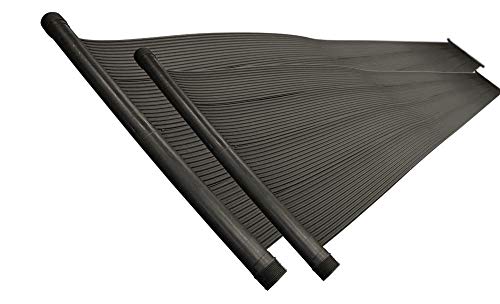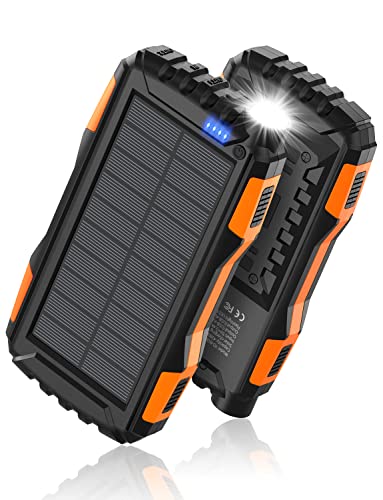
Welcome to the quick summary of our step-by-step guide on how to determine if your home is suitable for a solar water heater installation. In this guide, we aim to help you understand the benefits of solar water heaters and provide you with a clear process to determine if your home is a good fit for this sustainable and energy-efficient solution.
Solar water heaters are an environmentally-friendly alternative to traditional water heaters that harness the power of the sun to heat water for your home. By installing a solar water heater, you can reduce your carbon footprint, save money on energy bills, and enjoy a consistent supply of hot water.
Our step-by-step guide will walk you through the process of assessing your home’s suitability for a solar water heater installation. We will cover various aspects such as evaluating your location’s solar potential, assessing the available space for solar panels, examining the condition of your current water heating system, and considering any local regulations or incentives.
By following our guide, you will have a better understanding of whether your home is a good candidate for a solar water heater installation. So, let’s get started and take a step towards a greener and more sustainable future!
Top Picks for Solar Water Heaters
Installing a Solar-Powered Water Heater: A Step-by-Step Guide from This Old House
Check your roof's suitability
Check if your roof receives adequate sunlight by observing it throughout the day. Ensure that there are no nearby structures or trees blocking the sunlight. Additionally, assess the structural integrity of your roof to ensure it can support the weight of a solar water heater. Look for any signs of damage or weakness such as sagging or cracking.

Evaluate your water usage
To determine your average daily hot water consumption, start by keeping track of the time you spend in the shower and the flow rate of your showerhead. Multiply the time spent by the flow rate to find out how much water you use per shower. Repeat this process for all other hot water activities, such as doing the dishes or laundry. Add up the total usage for a day and divide it by the number of people in your household to get an estimate of your average daily hot water consumption. This information will help you choose the right size of solar water heater to meet your needs.
Consider local regulations and permits
To research the local regulations and permits required for installing a solar water heater in your area, follow these steps:
- Contact your local municipality or building department to inquire about any specific regulations or permits related to solar water heater installations.
- Consult with a licensed contractor or solar installer who is knowledgeable about local building codes and regulations.
- Check if you need to obtain a building permit or any other permits before starting the installation process.
- Ensure that you comply with any setback requirements, size limitations, or zoning restrictions that may be applicable to your property.
Remember, it is important to thoroughly understand and adhere to local regulations and obtain any necessary permits to ensure a safe and legal installation of your solar water heater.
Assess your budget
To evaluate the cost of purchasing and installing a solar water heater and potential savings on energy bills, follow these steps:
- Research the average cost of solar water heaters in your area. Check with local suppliers and online resources for pricing information.
- Calculate the installation cost by consulting with professional installers or contractors who specialize in solar water heater installations. They can provide you with estimates based on your specific needs.
- Estimate the potential savings on energy bills by comparing your current water heating costs to the projected costs with a solar water heater. Consider factors such as the size of your household, average water usage, and the efficiency of the solar water heater system.
- Take into account any available government incentives or tax credits for installing a solar water heater. This can help offset the upfront costs and provide additional savings over time.
By following these steps, you can assess the budget for purchasing and installing a solar water heater and determine the potential savings on your energy bills.
Evaluate your existing water heater
To assess the condition and efficiency of your current water heater, follow these steps:
- Check for leaks or signs of corrosion: Inspect your water heater for any leaks or visible signs of rust or corrosion. Leaks or corrosion can indicate that your water heater is nearing the end of its lifespan and may need to be replaced.
- Evaluate the age of your water heater: Determine how old your current water heater is. Most conventional water heaters have a lifespan of around 10-15 years. If your water heater is approaching or exceeding this age range, it may be time to consider a replacement.
- Calculate its efficiency: Check the energy efficiency rating of your water heater. If it has a low efficiency rating, it means that it is not operating at its maximum potential and is consuming more energy than necessary. A solar water heater, on the other hand, can provide significant energy savings.
- Assess your hot water demand: Consider your household’s hot water usage patterns. If you have a high demand for hot water, such as multiple bathrooms or frequent use of hot water appliances, a solar water heater may be a suitable replacement as it can handle larger hot water loads.
By evaluating these factors, you can determine if a solar water heater would be a suitable replacement for your existing water heater. Remember to consult with a professional if you are unsure or need further guidance.
Consult with professionals
To ensure you make informed decisions, seek advice from qualified professionals. Consult with experts such as solar water heater installers or energy consultants who can provide you with expert opinions and recommendations. Their expertise will help you navigate the process and make the best choices for your needs.
Consider long-term benefits
Evaluate the environmental benefits and potential long-term savings that come with installing a solar water heater. Consider the reduction in greenhouse gas emissions and the conservation of natural resources. Calculate the estimated energy savings and cost savings over the lifespan of the solar water heater. Compare this with the initial investment and make an informed decision based on the long-term benefits.
Make an informed decision
Based on the information gathered, evaluate the feasibility of installing a solar water heater in your home. Consider factors such as the availability of sunlight in your location, the orientation and pitch of your roof, and any shading or obstructions that may affect the system’s performance. Additionally, assess your hot water consumption and determine if it aligns with the expected output of a solar water heater. For example, if your household uses a significant amount of hot water in the mornings and evenings, a solar water heater may be a suitable option as it can store excess heat for later use.
Making the Right Decision
In conclusion, determining if your home is suitable for a solar water heater installation involves considering several important factors. First, you need to assess the suitability of your roof for solar panels and ensure it receives enough sunlight. Next, consider your water usage patterns and determine if a solar water heater can meet your needs. It’s crucial to be aware of any local regulations and permits required for the installation. Additionally, evaluate your budget and weigh the upfront costs against the potential long-term savings. Take into account the condition of your existing water heater and whether it needs to be replaced. Lastly, seek professional advice to ensure you have all the necessary information to make an informed decision. By considering these factors, you can enjoy the numerous long-term benefits of a solar water heater while reducing your environmental impact.
Helpful Hints
Getting Started with Solar Water Heaters
- Position the solar water heater: Ensure that the solar collector is placed in an area that receives ample sunlight throughout the day, preferably facing south. This will maximize the efficiency of the system
- Connect the water supply: Connect the cold water inlet and hot water outlet pipes to the corresponding connections on the solar water heater. Make sure the pipes are tightly secured to prevent leaks
- Set the temperature: Adjust the temperature settings on the solar water heater control panel according to your preferences. Most systems allow you to set the desired temperature for your hot water
- Monitor the performance: Regularly check the temperature gauge on the solar water heater to ensure it is functioning optimally. If the temperature is not reaching the desired level, you may need to adjust the settings or seek professional assistance
- Maintain the system: Periodically clean the solar collector to remove any dirt or debris that may hinder its performance. It is also recommended to have a professional inspect and service the solar water heater annually to ensure its longevity and efficiency
- Remember, using a solar water heater is an environmentally friendly way to heat water while saving on energy costs. Enjoy the benefits of renewable energy and hot water all year round!
Find the Perfect Solar Water Heater for Your Home
Hot Offer! Solar Power program that truly helps people! Crazy EPCs!
New video/guide course! Earn up to $148.50 per sale! Amazing conversion rates (up to 14.3%), EPC $1.91-$4.24, refund rate only 2.7%, 75% commissions for all upsells/downsells! ...Watch our new affiliate video: https://affiliates.diyhomeenergy.com/
EMP Cloth
Material / fabric that protects electronics, generators, cars from Electromagnetic Pulses (EMP's), works better than a Faraday cage.
NEW: Self Sufficient Backyard
High Payouts! From the creators of The Lost Ways and The Lost Book of Remedies! Converts well on interests like self-sufficiency, off grid, gardening, DIY, survival, and others. Send us an email for marketing materials, best banners, videos, etc.










